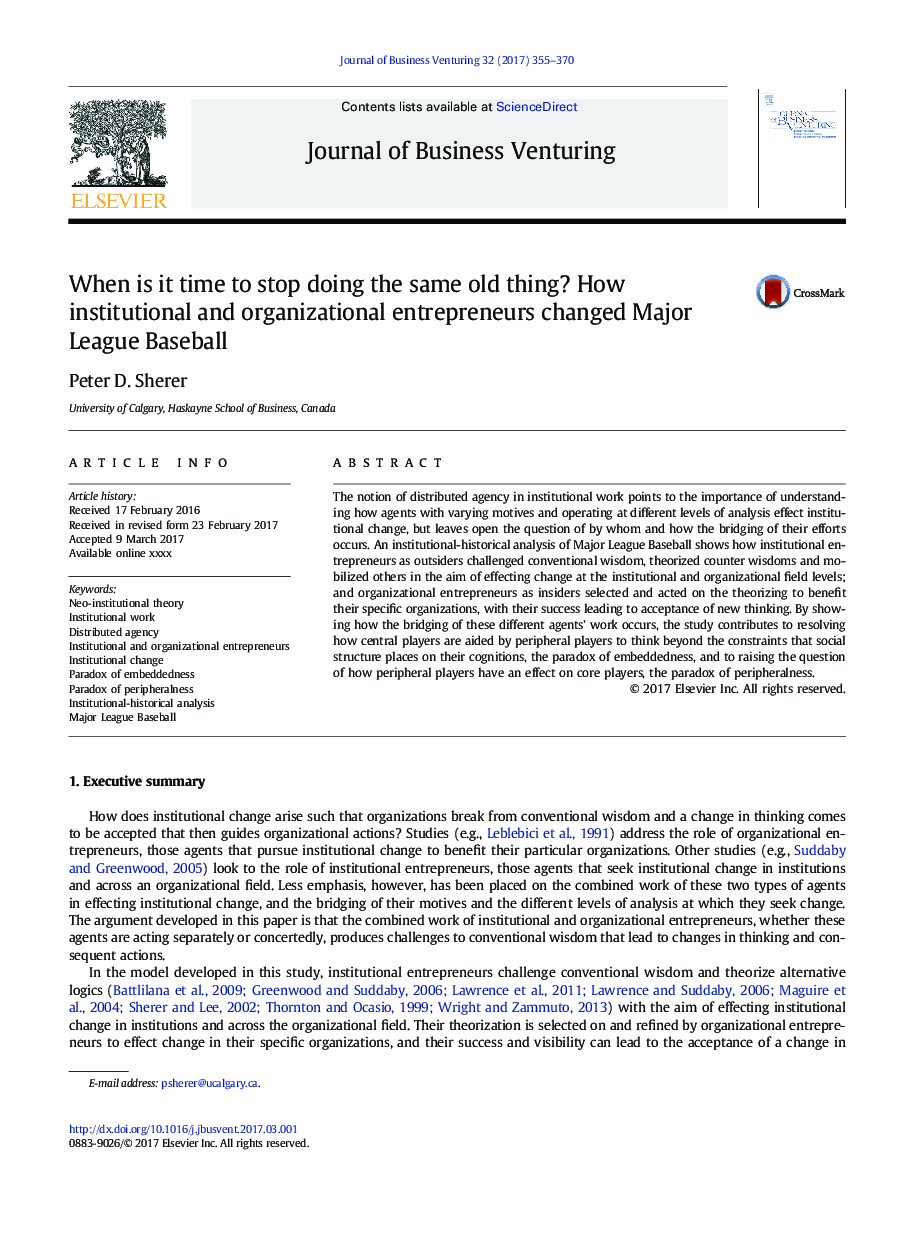| Article ID | Journal | Published Year | Pages | File Type |
|---|---|---|---|---|
| 5109980 | Journal of Business Venturing | 2017 | 16 Pages |
Abstract
The notion of distributed agency in institutional work points to the importance of understanding how agents with varying motives and operating at different levels of analysis effect institutional change, but leaves open the question of by whom and how the bridging of their efforts occurs. An institutional-historical analysis of Major League Baseball shows how institutional entrepreneurs as outsiders challenged conventional wisdom, theorized counter wisdoms and mobilized others in the aim of effecting change at the institutional and organizational field levels; and organizational entrepreneurs as insiders selected and acted on the theorizing to benefit their specific organizations, with their success leading to acceptance of new thinking. By showing how the bridging of these different agents' work occurs, the study contributes to resolving how central players are aided by peripheral players to think beyond the constraints that social structure places on their cognitions, the paradox of embeddedness, and to raising the question of how peripheral players have an effect on core players, the paradox of peripheralness.
Related Topics
Social Sciences and Humanities
Business, Management and Accounting
Business and International Management
Authors
Peter D. Sherer,
